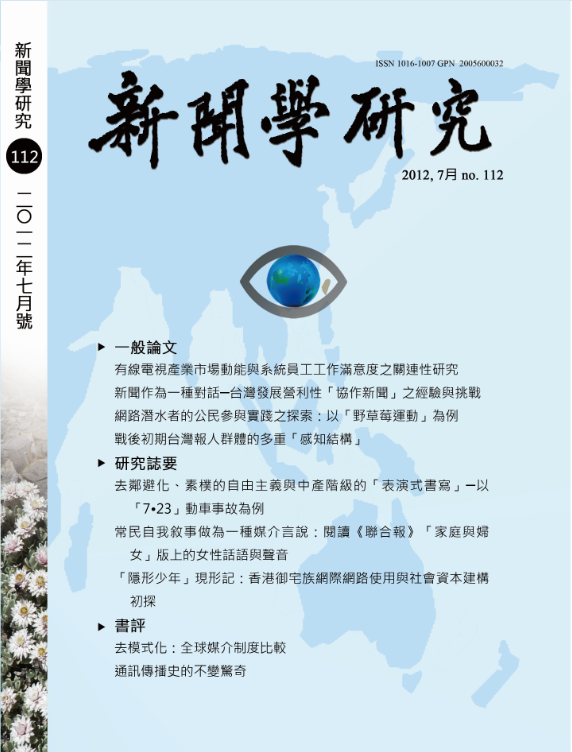前期出版
前期出版
頁數:159﹣200
去鄰避化、素樸的自由主義與中產階級的「表演式書寫」—以「7·23」動車事故為例
De-NIMBYized Naive Liberalism and Performative Writing of China’s Middle Class: A Case Study of the July 2011 Train Accident
研究誌要
作者(中)
吳暢暢
作者(英)
Chang-Chang WU
關鍵詞(中)
新聞學研究,政大
關鍵詞(英)
Liberalism, Micro-blog, Middle Class, Train Accident
中文摘要
本文從微博文本出發,分析在「7·23」動車事故發生後,中產階級如何擺脫往常的政治「鄰避」立場,從而透過微博質疑政府的全過程及其背後動因。文章認為,律師、媒體記者與知識分子以「有機知識分子」的面目出現,成功地引領已淪為中下層的中產階級,透過微博幫助建構、型塑中國中產階級的階級意識與主體性,不過,所謂的「階級意識」最終淪為被抽象、無意義的民主化原則盲目捕獲的普世主義「智識」,並遮蔽、阻礙了他們討論、推動中國國有體制或地方吏治(或民主化)改革的具體進程的可能性,這使得中產階級在微博上的首次集體「表演」猶如曇花一現,短暫燦爛。
英文摘要
This article explores the challenges against the state-owned railway system and, by extension, the entire Chinese political structure, mounted by the Chinese middle class on the blogosphere in the aftermath of a devastating train accident on July 23, 2011. The analysis underscores the pivotal “organic intellectual” role of journalists, lawyers, and public intellectuals in constructing the “class consciousness” and subjectivity of an anxious, ambivalent, and insecure networked middle class in China’s rapidly polarizing society. However, this “stand out” collective action of the Chinese middle class was the result of several contingencies, and the apparent uniformity of their speech acts concealed deep fissures. Moreover, the naive liberalism and anti-statist sloganeering that underpin the majority of microblog discourses eventually prevented any possibility of discussing and advancing a concrete process for reforming China’s state-owned system and democratizing Chinese politics.
1091次下載



